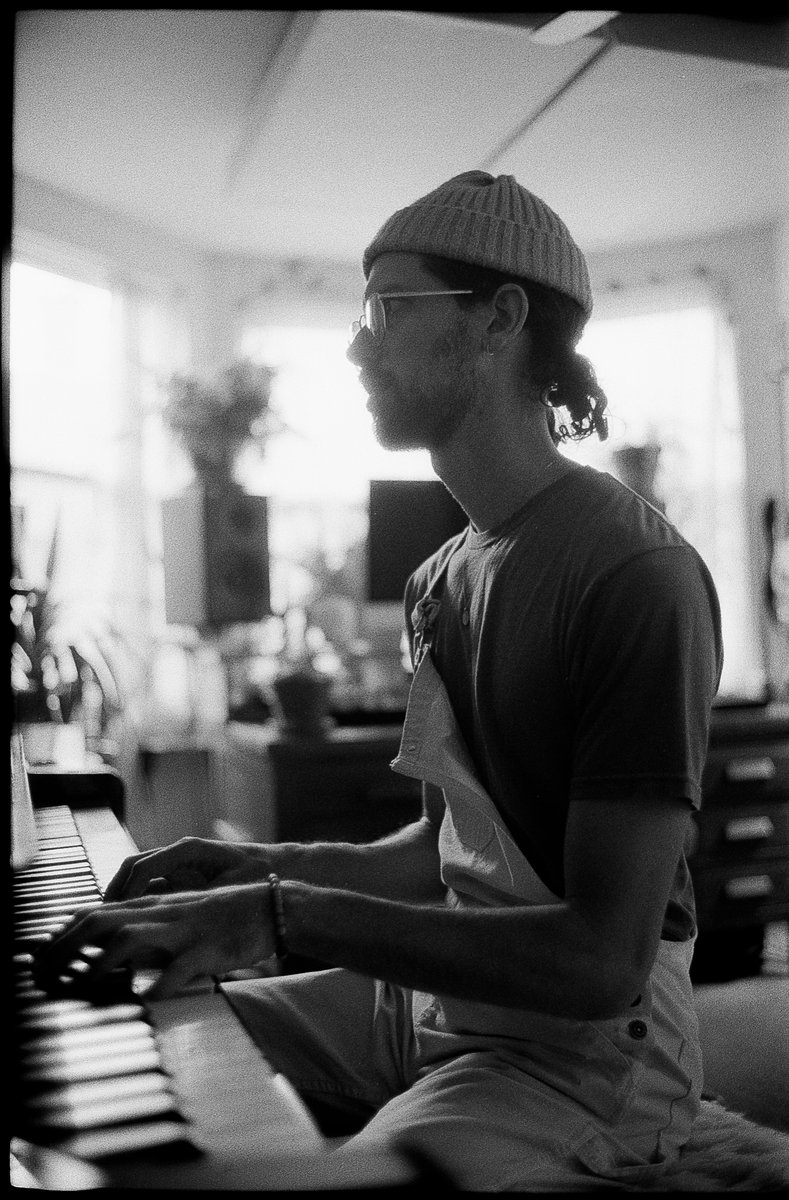JM: I’m very curious because I do not come from the world of playing in bands and that sort of thing. I come from the hip hop world, but I’m, I’m very curious about what the repertoire is like in a jazz program like that. What kind of stuff were y’all playing?
LC: I mean, it was like learning a lot of standards for sure. I was getting really into Stevie Wonder and, D’Angelo, all kinds of soul music, like neo soul as well, I was like learning that kind of stuff, but in school it was it was like learning standards. And then also, as a bass player, I was able to get a lot of gigs really, really early on in school too, because people just always need bass players. So I was just learning a ton of standards to play gigs and stuff.
JM: Ok, so you had this injury and you’re rethinking your approach to music. Tell me a little bit about how you made the transition into production.
LC: Yeah, it was not not a smooth transition at all. There were many years where I was very distraught about not being able to play. For a long time I thought that I was gonna be a bass player. Like that’s what I was gonna do with my life. I think I first hurt my hand when I was 19 and then it wasn’t until I was like 25, 26 when I was like, this is not gonna happen for me. I need to find another path forward. That’s around the time that I was like “I like making beats.” I don’t think I really knew what a producer was at that time, per se. I had considered not doing music for a career anymore.
JM: I want to talk a bit about Genes. You’re calling on all these memories of your family and all that. What inspired you and made you want to do that?
LC: I think the initial ambition I had was just to make a beat tape. When I first started putting it together, I really didn’t have any idea that I was gonna like, tie in samples from my family or make a story around it. I started putting different beats and sounds together that I had been laying around for years. I was listening to some of J Dilla and Madlib’s beat tapes and kind of realizing the way that they use samples of people talking and stuff in between songs to kind of tie things together. And then I started looking through my sample collections for stuff I could use. And I was like, well, wait a minute. I have all these amazing recordings of my family. Let me try throwing those in there. That’s really the way it happened. So to be honest, it wasn’t like I had this great idea at the beginning that I was gonna make a piece of art about my family lineage or anything. The story came together like at the last part of the project.
JM: Where the recordings of your family of your phone, were they from old cassettes or what?
LC: Yeah. I’m so lucky that my aunt, my dad’s sister is a great family historian. She had the the great idea to record my grandma playing piano in the 80s. And then also like in the late 90s and early 2000s when she was like, at the end of her life and had Alzheimer’s. There’s these amazing recordings of her not even being able to hold a conversation. You can hear on the tape sometimes, but then my aunt will ask her to play a song and, and she’ll be like, “oh, I don’t know that song.” And then just play the whole thing, like start playing it.
JM: Wow.
LC: It’s amazing. So my aunt had sent me some cassettes and one of them was of actually my grandma’s sister just talking for like 20 or 30 minutes about their childhood. I used that a lot in the project.
JM: Have you played Genes for any of your family members? Have they heard it?
LC: Yeah, for sure. I sent it around to tons of family members. It was really fun too. I think people really, really thought it was fun to hear those voices of people that they haven’t heard in decades. It was a sweet way to connect with family.

